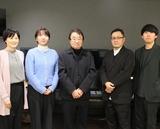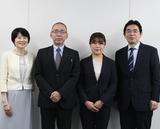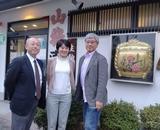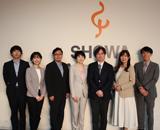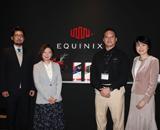August 2020
Surviving in the Age of Uncertainties: The Editor-in-Chief at Diamond Harvard Business Review Discusses the Key to Long-Lasting Magazine Publishing
Increasing Subscribers Despite Struggles in the Publishing Industry
Ohsato: It's been a while since the publishing industry began to struggle, but how are recent sales for the magazine?
Otsubo: It's small, but there's been an increase in subscribers. We believe it's a result of being considered a textbook on management featuring the most up-to-date information, so this makes us very happy.
Ohsato: That's amazing. How did the COVID-19 situation affect sales?
Otsubo: In-store sales dropped during April and May due to COVID-19. Many people buy our magazine from large bookstores in cities like Tokyo and Osaka. So when bookstore hours were shortened and fewer people were commuting as a result of remote work, sales went down. But the situation recovered in June and the overall in-store sales are now stable.

Kogure: HBR in the US is using its website really well. They release a lot of articles online that they think readers will be interested in. So this allows readers to pick and choose the articles they want to read. We're also publishing more articles online for DHBR, which is increasing the number of readers, but we're still far from catching up with HBR.
Three years ago, HBR shifted to publishing the magazine just six times a year, so paper-based content has decreased overall. Although the website used to only feature short articles on simple subjects, as a result of this shift, they started to also release longer articles on more in-depth subjects. So by and large, the amount of text that needs to be translated has increased.
Easy-to-Edit Translations Tailored Specifically for the Publishing Company
Ohsato: Ms. Saito is in charge of delivering translations for DHBR, and she handles your projects in a way that differs from regular translations.
Saito: For our regular company clients, we ask our translators to translate the projects so that the texts delivered by Arc Communications can be used as they are. This is because our regular clients ask for translations that they can use without needing to edit first. But for DHBR, we understand that your work is to use our translations as a base and then edit them in-house to further enhance the quality. So we focus on offering translations that are easy to work with in that regard.
Kogure: We're very grateful for the comments you leave us. They're helpful references for us on the editorial team. I imagine it takes extra time and effort to do this, but we'd like to ask you to continue in this way in the future.

Ohsato: What is your honest assessment of Arc Communication's translations?
Otsubo: Actually, just the other day, we received a surprise inspection from HBR on our translation quality and we received an "excellent" evaluation. We believe this is thanks to Arc Communications.
Ohsato: Thank you very much! That's wonderful to hear.
From Article Subject to Business: Balance Is Everything
Ohsato: Lastly, could you talk about what drives you forward during these tough times and the policies that help you continue the business?
Otsubo: This may not be a very interesting answer, but I think balance is key. During editorial meetings, young editors propose trendy topics, but as a manager, I need to think of the sales and strike a balance. Start-ups are an energetic topic, but when I think of the needs of our subscribers, I hesitate a little. Another area that needs to be balanced is readership. We need people in the younger generation to become readers, and millennials and people from Generation X are interested in SDGs and contributing to society. This is a topic that all of our members in the editorial department really enjoy, so we hope to continue publishing articles on it.
Ohsato: What about areas other than the magazine?
Otsubo: We're spending a lot of time publishing books too. These include textbooks for managers using materials from DHBR as well as translations of books published by HBR and some authored by the professors who write for HBR. Additionally, when we publish new books, we sometimes hold seminars to promote sales. Subscribers also have access to the digital version (PDF) of the articles. Since we can't hold in-person seminars now because of COVID-19, we're thinking of shifting to offer online webinars.
Our company also recently started selling books in genres that we didn't use to handle, like Why We Went Extinct, and their sales are looking good. Cookbooks are also selling well. I think that in this age of uncertainties, publishers need to add new genres to their portfolios. But at the same time, the fact that serious books on complex topics aren't selling as well as they used to is a serious problem.
Ohsato: This recent crisis has made us think deeply about everyday lifestyles that we took for granted until now. It's times like this that make me want to read serious books that capture the essence of complex subjects. It would be great to be able to switch between mediums to read materials from a variety of genres, such as by slowly and deliberately reading in-depth subjects from a book while consuming a lot of lighter subjects online.
It's an honor that you reach out to us whenever you're thinking of starting something new. We hope to continue contributing to your company's publications and working with you in the future.
Thank you very much for your valuable time today.
-------------------------
Contact point for Diamond Harvard Business Review:
Diamond Harvard Business Review
Need help with a translation or interpreting project? Feel free to contact us here.
Arc Communications
Feature Interview Index

